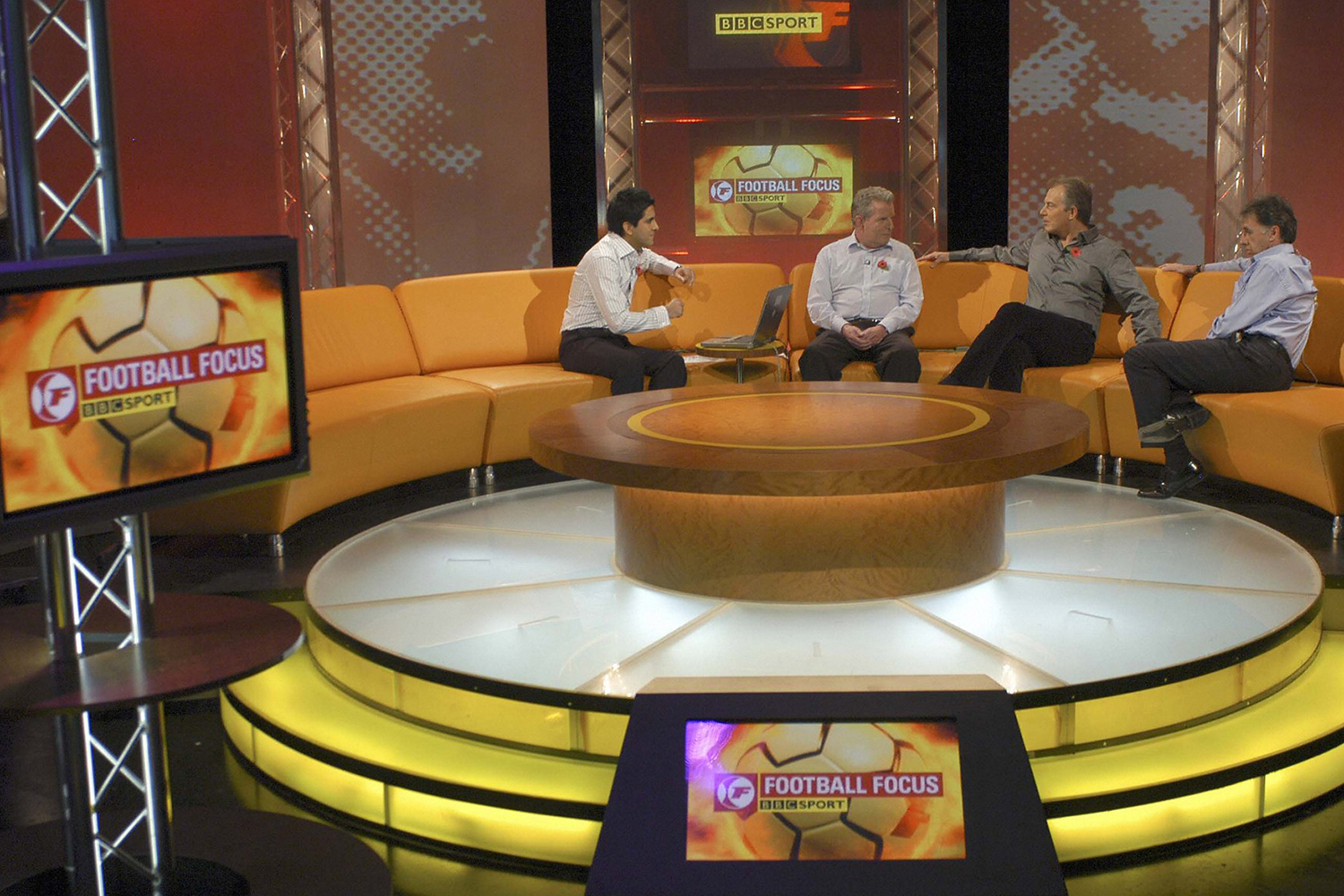There is a very good chance that nobody, outside a few BBC executives, even noticed the change. It was easy to miss, after all: a cosmetic, clerical sort of thing, an administrative technicality. In the short term, nothing was different.
In the spring of 2001, BBC director of sport Peter Salmon decided Grandstand required a gentle makeover. Traditionally, the show had been bookended by two segments dedicated to football: for two generations, Saturday afternoons had started with Football Focus and ended with Final Score.
Salmon’s tweak was a superficial one. That summer, he announced, those two shows would become their own entities, freed from the comforting, cloying embrace of Grandstand, given their own branding, afforded the chance to exist on their own terms.
The thinking, according to contemporaneous accounts, was purely practical. We tend to overlook what an important role technology plays in how sport develops. The launch of the Premier League is as much a story about communications satellites as it is the commercial ambitions of Manchester United. The data revolution that has swept all sports in the past quarter century can, at least in part, be attributed to the invention of the DVD.
The decision to divest Football Focus from Grandstand has similar roots. In 1998, Britain had been introduced to its first electronic programme guide (EPG). Salmon and his colleagues realised that three shows on a Saturday afternoon, rather than just one long one, gave the BBC a “greater presence” on the EPG. It was, if anything, a marketing ploy, one that involved no greater upheaval than making Final Score a show in its own right.
The revolution was televised, but only those watching really closely would have spotted it.
That simple shift, though, may have reflected a far more profound, far less visible change. In the 1990s, football had grown into not just a financial behemoth but a cultural one, too. The Premier League, promoted relentlessly by the nascent Sky Sports, had become a cornerstone of national identity – a central pillar in the self-image of Cool Britannia – in a way that football, in reality, had never been.
Consciously or not, what Salmon and his colleagues were doing was demarcating a line between football and the rest of sport. Grandstand showed sport: lawn bowls and racing and maybe some rugby, when the BBC had the rights. Football, though, had grown so big and so fat, even then, that it had transcended that categorisation. It now had more in common with the light entertainment that followed on Saturday evenings than showjumping or tennis or snooker. It had, in effect, broken out of sport.
‘June and July would once have been free of football, a chance for other sports to bask in the sun’
‘June and July would once have been free of football, a chance for other sports to bask in the sun’
(This is not, regrettably, a theory I can claim as my own. I read it once, some time ago, online. Despite at least three pleas – one in print, a couple on social media – I have never been able to identify the source. If it is you, please get in touch; I don’t want to take credit for your brilliant insight, but can reluctantly hold the fort for now.)
Of course, that has only become more pronounced. Football is now, as the historian Tom Holland has said, probably the most popular pastime that has ever existed. It towers over our sporting landscape, its shadow so deep that almost every other sport struggles for light.
Newsletters
Choose the newsletters you want to receive
View more
For information about how The Observer protects your data, read our Privacy Policy
That is never more obvious than at this time of year. In Grandstand’s heyday, June and July would have been completely free of football, a chance for other sports to bask, just a little, in the summer sunshine.
But football’s status as a cultural phenomenon means it no longer has to respect the traditional sporting calendar, and so now these months include: the Nations League finals; World Cup qualifying; the Club World Cup; a short transfer window; a long transfer window; the women’s European Championship.
It is absurd, of course, to accuse “football” of anything. Football is a game, rather than a sentient being. It does not have thoughts, or feelings, or wants.
And yet it does feel an awful lot like this is a deliberate strategy, that the game’s executives or powerbrokers are very much of the view that no other activity or pursuit should be allowed to thrive.
There is a cost to this. Some sports, some events, still manage to pierce the mainstream – Wimbledon, the Tour de France, the Ashes, Formula One, albeit largely as expensive B-roll for Drive To Survive – but many do not. There is, perhaps, no bigger victim of football’s endless attention-seeking than rugby league, which switched to a summer calendar to escape the game’s omnipresence in 1996, only for football to decide it might like to colonise those months as well.
It is not alone. This week, there are two legs of the Speedway Grand Prix at Belle Vue in Manchester. There was a time, in the 1950s, when speedway may have been Britain’s second sport, attracting crowds of 80,000 , selling out Wembley, and maintaining a national league of three divisions. Now, it is – let’s put this delicately – a niche pursuit.
It is not that it is not on television – events at Belle Vue will be shown live on TNT Sports – but like so many other sports, it has been placed in its own silo, broadcast to an established audience, deprived of the chance to appeal to new converts. Like all of the others, it is mere sport, and as such it must learn to survive in whatever brief window football affords it.
Photorgraph by Kate Callas/Fairfax Media via Getty



